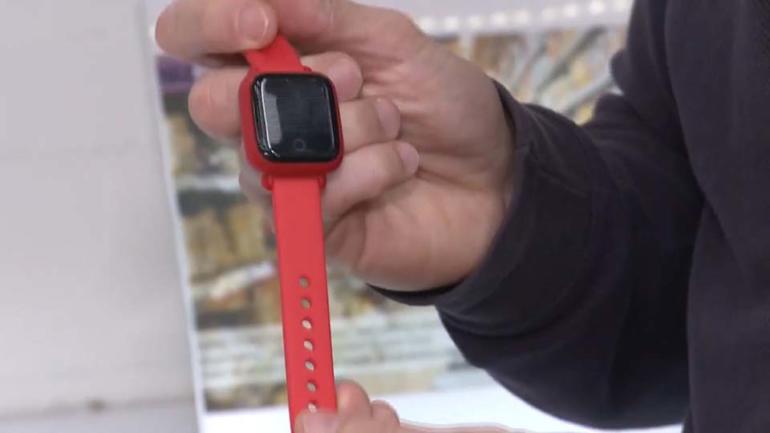In the trade war, Chinese imports to the U.S. were hit with a new 15% tariff in September. Everything from smartwatches to smart speakers were on the list.
But as CGTN’s Mark Niu reports, some tech companies now have no choice but to look outside of China to make ends meet.
Once the leader in health tracking devices, Fitbit has seen its market share drop dramatically with the rise of the Apple Watch.
And now with its devices hit with tariffs, the company issued a statement, indicating it had made changes to its supply chain.
Chief Financial Officer Ron Kisling said, “Based on these changes, we expect that effectively all trackers and smartwatches starting in January 2020 will not be of Chinese origin.”
Fitbit isn’t alone. Silicon Valley-based Tile makes tracking devices to prevent people from losing things. Tile does the majority of its manufacturing in China.
In October, the company’s CEO told media that they were re-evaluating their entire supply chain and had dedicated an entire team to traveling to other cities to evaluate manufacturing facilities.
“There’s been a lot of issues with trust – U.S.-based entrepreneurs and CEO’s,” said John Meyer Managing Partner of Starship Capital. “Whether they should continue to invest in China if they know that in the background, any given day, the trade tension could get worse.”
“This is a smartwatch called Octopus Joy. This is for kids to wear,” said Cyril Ebersweiler, Founder & Managing Director of HAX. “Typically, this should be on the list of the tariffs. They are able to have their prices get a little higher and for their customers to be okay with it, because it also represents something. The question is at what point there is less products that can be sold?”
Joy is one of the more than 250 startups Ebersweiler’s accelerator, HAX, has invested in.
With locations in San Francisco and Shenzhen, Hax utilizes China’s supply chain to help speed up the process for startups to get their hardware to market.
“Where things become more difficult is when companies are much further along,” said Ebersweiler. “But I think the alternatives anyway are more headaches from a logistic standpoint and from a quality standpoint, not matching anything China can offer today.”
One Hax startup – NERv – is building sensors that can analyze a patient’s fluids after surgery to prevent complications.
I asked the company’s Chief Operating Officer if the tariffs were impacting their product.
“On a small scale, I would say not really. Not entirely,” said Amr Abdelgawad, COO of NERv Technology. “Right now we are focused on getting the value of being able to obtain these components from China which for a startup is still very valuable at a cheaper price. Once we move into manufacturing and start to establish a lot higher volumes from this product, I’d say that would be a consideration.”
Even for bigger companies Ebersweiler questions whether moving out of China is shortsighted, predicting that in five, ten, or 15 years’ time, manufacturing will be mostly automated.
“So the question is really what stage does it matter to start moving production, knowing that anyway you are going to replicate the exact same robotic systems elsewhere,” said Ebersweiler.
Ebersweiler cites Vietnam as the most talked about option to avoid tariffs but believes just about everywhere else lags in scale and quality.
 CGTN America
CGTN America

